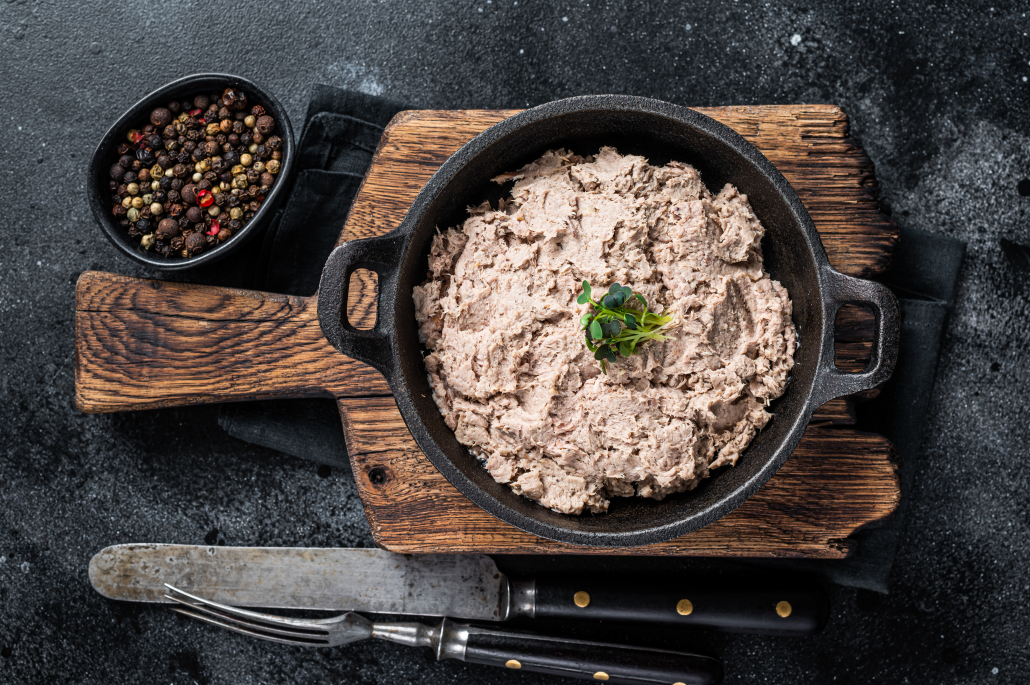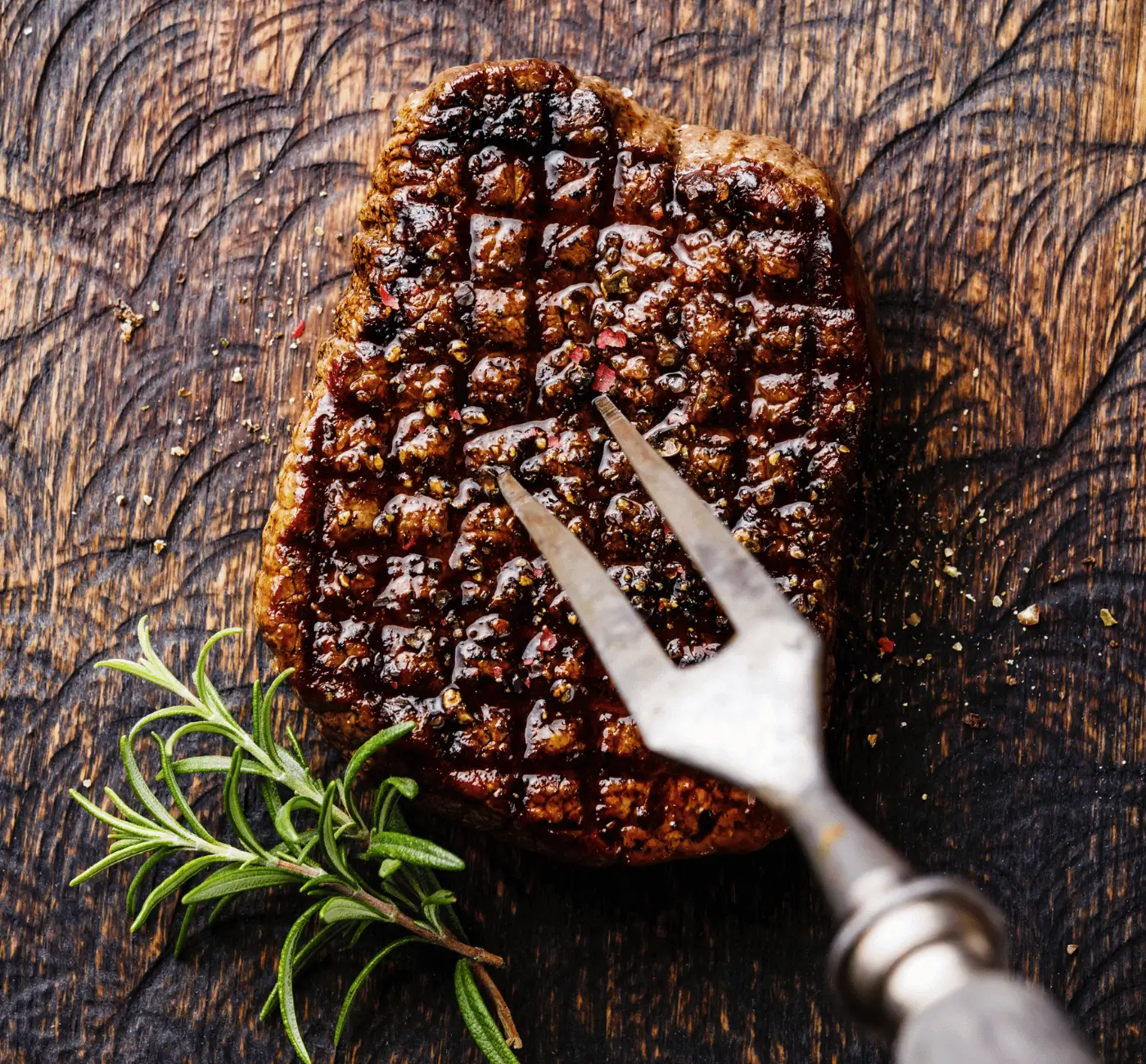
Beef liver and chicken liver are among nature’s most nutrient-packed superfoods. But is pork liver good for you? Let’s take a closer look at pork liver nutrition, benefits, and a pork liver pate recipe.
Pork liver refers to the liver of a healthy pig, particularly when it’s used as food.
The difference between pork liver and, say, bacon, couldn’t be much greater. Though not consumed as commonly as beef liver, pork liver can be cooked in many of the same ways. Pork liver is probably most commonly enjoyed in the form of paté. Read on for our pork liver pate recipe.

Pork liver is far more nutritious than your average piece of bacon or ham. It’s higher in B vitamins, vitamin A, vitamin D, vitamin K2, and selenium than all other cuts of pork.
Since pork liver is lower in fat than these other cuts, it’s inherently lower in inflammatory PUFAs.
Nutritional analysis shows us that it contains 159 calories, 26 grams of protein, and 4 grams of fat per 100 grams. [3] The fat content is mostly unsaturated.

Pork liver has slightly less vitamin A than most other types of liver. But that may actually be a good thing. Vitamin A can be difficult for your own liver to dispose of when consumed in excess.
It is also higher in selenium than beef or chicken liver. Selenium is a thyroid-boosting mineral that plays important roles in regulating immunity and facilitating DNA production. [5][6]
Let’s look at some of the top health and nutritional benefits next.
Just 3.5 ounces of pork liver contains 99% of your RDV for iron. This iron comes in the form called heme iron, meaning it’s ultra-easy for your body to absorb and utilize. [7]
Getting enough iron can go a long way towards promoting fertility and warding off fatigue, poor circulation, or shortness of breath. [8]

Pork liver is higher in protein, lower in fat, and lower in calories than most types of meat. Why is this important? Because calories still matter for some people — even on a high fat, low carb diet.
You will gain weight no matter what you eat if you’re consuming more calories than your body uses for its energy needs.
65% of pork liver’s calories come from protein. This is high-quality whole food protein containing all nine essential amino acids, and it is especially high in lysine. [9]
Of all the nutrients in pork liver, its B vitamin content is most impressive. Just 3.5 ounces of pork liver contains 774% of your RDV for vitamin B12.
B12 plays an essential role in red blood cell formation, cell metabolism, nerve function and the production of DNA. It is also responsible for many bodily functions and supporting fetal development, bone health, and mood, while maintaining healthy skin and hair.[10]
This particular benefit seems to verge on the esoteric, but it’s true nonetheless: eating any particular organ meat can provide health to the very same organ within your body.
Pork liver’s unique combination of selenium, B vitamins, and vitamin A may increase your own liver’s detoxication abilities. Pork liver may benefit other organs including your thymus gland, brain, and heart. [11][12][13]
Pork liver can be cooked much like other organ meats. Follow a few basic principles, and you should be able to turn it into a truly delicious meal:
This recipe is a tad complex — but well worth it, and it all comes out in the flavor!
This classic dish is simple and tasty.
When it comes to sourcing quality organ meats, local sources are a go-to. See if any farmers in your area provide grass-fed pork products — if they do, they might also have some grass-fed pork liver. Buy in bulk and you should be able to walk away with a great deal.
Pork liver’s nutrient profile makes it a great addition to your keto, carnivore, or whole-food diet. Its diverse nutrient content means that pork liver offers numerous health promoting benefits. Here’s a short recap, pork liver is:

We’re a global community of seekers, healers, and doers committed to reclaiming health on our own terms. When you join the Kiltz Mighty Tribe (KMT), you’ll gain access to education, support, and collective wisdom.


